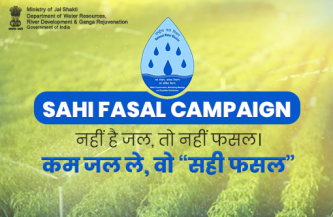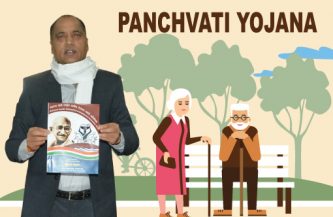Central Council for Research in Unani Medicine

Central Council for Research in Unani Medicine
India is a treasure trove of traditional medicine, rooted in holistic health and wellness principles. Among these, the Unani System of Medicine stands out for its profound historical significance, prophylactic and therapeutic efficacy. India has taken the mantle of leadership role in promoting Unani Medicine. At the forefront of this movement is the Central Council for Research in Unani Medicine (CCRUM), under the visionary leadership of its Director General, Dr. N. Zaheer Ahmed. The Central Council for Research in Unani Medicine (CCRUM) has emerged as a key player in preserving, promoting, and globalizing this traditional medical system, helping it gain recognition beyond India’s borders.
The CCRUM has achieved remarkable progress across multiple research domains. Can you highlight the primary areas of focus and explain their role in advancing Unani Medicine?
CCRUM has taken significant strides in preserving the rich heritage of Unani Medicine. CCRUM is dedicated to the advancement of Unani Medicine through extensive research in various domains. Key areas of focus include:
- Survey and Cultivation of Medicinal Plants Programme:
The CCRUM conducts an extensive survey programme of medicinal plants across various forest regions of the country. The primary aim is to collect, identify, and document medicinal plants while gathering ethno-pharmacological data on their traditional uses from tribal communities and rural populations. This programme is implemented in the following research centres.
- National Research Institute of Unani Medicine for Skin Disorders (NRIUMSD), Hyderabad.
- Regional Research Institute of Unani Medicine (RRIUM), Chennai, Srinagar, Bhadrak and Aligarh
- Drug Standardization:
The Drug Standardization Research Programme focuses on establishing pharmacopoeial standards for single and compound drugs of Unani medicine, as listed in various volumes of the National Formulary of Unani medicine (NFUM) and the Essential Drugs List. The Standardization process encompasses a comprehensive evaluation of Unani drug in respect to their pharma-cognostical, physico-chemical, pharmacological profile in order to study the various qualitative and quantitative characteristics of drugs. The work on compound formulation includes development of Standard Operating Procedure (SOPs) for their method of preparation and subsequently formulating their pharmacopoeial standards. These developed pharmacopoeial standards are published in the form of monographs in various volumes of Unani pharmacopoeia of India, Part-I (Single drug) &Part-II (Compound formulation).
Additionally, the programme undertakes the standardization of investigational drugs for clinical trials conducted by the CCRUM, as well as the analysis of heavy metals, microbial load, aflatoxins, and pesticide residues in drugs. Chemical investigations of Unani medicinal plants are also integral to this effort.
All standardization activities are conducted according to protocols approved by the Scientific Advisory Board of the Pharmacopoeia Commission for Indian Medicine & Homoeopathy, Government of India. Research is carried out at the following centers:
- Drug Standardization Research Institute (DSRI), Ghaziabad and New Delhi
- National Research Institute of Unani Medicine for Skin Disorders (NRIUMSD), Hyderabad
- Regional Research Institute of Unani Medicine (RRIUM)-Chennai, Srinagar and Aligarh.
- A) Pre-Clinical: Preclinical safety and pharmacological studies on some classical Unani drugs are undertaken at the Council’s pharmacological units at the following Institutes-
- National Research Institute of Unani Medicine for Skin Disorders (NRIUMSD), Hyderabad
- Regional Research Institute of Unani Medicine (RRIUM), Srinagar Pre-clinical studies are also carried out in collaboration with Pharmacology Departments of some of reputed Academics/Scientific Institutes/Universities.
- B) Clinical Research: Council is also validating the safety and effectiveness of Unani medicines through randomized controlled trials (RCTs) and other clinical studies. RCTs and numerous disease-specific studies have been successfully completed at the following centres:
- National Research Institute of Unani Medicine for Skin Disorders (NRIUMSD), Hyderabad.
- Central Research Institute of Unani Medicine (CRIUM), Lucknow.
- Regional Research Institute of Unani Medicine (RRIUM), Chennai, Bhadrak, Patna, Aligarh, Mumbai, Srinagar, Kolkata, New Delhi and Silchar.
- Regional Research Centre (RRC), Prayagraj.
- Clinical Research Unit (CRU), Bengaluru, Meerut, Bhopal, Burhanpur, Edathala and Kurnool.
- Fundamental Research: The Council also carries out a Fundamental Research Program at NRIUMSD, Hyderabad. The objectives of the program are
- To test scientifically the concept of Akhlat (Humours) and its relevance to the states of health and disease.
- To study the clinical, genetic, physiological, pathological and biochemical parameters of the subjects of different temperaments
- To conduct clinical assessment of Mizaj (Temperament) in different diseases (Hypertension, Diabetes, Gastritis, Psoriasis and Vitiligo) and scientifically establishing correlation among them.
- Literary Research:
The Council’s literary research program has been meticulously designed to establish the Unani System of Medicine on a robust scientific foundation that earns recognition within the global scientific community, while simultaneously reflecting its rich philosophical heritage. Classical literature associated with the Unani System is dispersed across private and public libraries, often remaining inaccessible to scholars and researchers. Many invaluable manuscripts are housed in various collections, with some deteriorating to the point of risking permanent loss of the knowledge they contain. Rare and ancient, these manuscripts hold critical information that demands immediate attention to preserve their legacy. Recognizing this urgency, the responsibility falls upon today’s scholars to unlock and utilize the wealth of information embedded in these historical texts. To fully leverage the profound insights of ancient Unani scholars, ensure the preservation of this rich heritage, and make its knowledge accessible to both national and international audiences, the council has launched an ambitious Literary Research Program exclusively through HAKILHRUM, Jamia Millia Islamia campus, New Delhi.
- Council’s Outreach activities include:
- Mobile Clinical Research Programme: Provides healthcare to underprivileged populations in rural and urban areas through regular visits at the door steps by Unani physicians.
- Mobile Health Care Program: One of CCRUM’s flagship initiatives is the Mobile Health Care Program, which operates under the Scheduled Caste Sub Plan (SCSP) and Tribal Sub Plan (TSP). This program provides free Unani healthcare services and creates health awareness amongst SC and ST populations across India. By conducting mobile outpatient departments (OPDs) and health camps, CCRUM is able to deliver Unani medical services directly to communities in need. The program aims to create awareness among the masses on preventive, promotive and curative health aspects through mobile OPD’s, awareness lectures, group meetings, family surveys and distribution of health literature among SC and ST population.
- School Health Programme: Aims to improve the health of school children by conducting baseline health check-ups, treating ailments with Unani medicines, and raising health awareness on topics like oral hygiene, nutrition, and safe drinking water.
Through these programs, CCRUM continues to contribute significantly to the growth, scientific development and modernization of Unani Medicine.
What is the most notable contribution of CCRUM to enhancing the credibility and global acceptance of Unani Medicine?
One of CCRUM’s most notable contributions is its focus on integrating traditional knowledge with modern scientific methodologies. Through clinical trials, pharmacological studies, and evidence-based research, the council has validated the efficacy of Unani treatments for various ailments. The Council has signed MoUs with institutions in Iran, Tajikistan, Bangladesh, and South Africa for academic and research exchanges. By partnering with global institutions and participating in international conferences, the council has positioned India as a leader in Unani medicine. These collaborations will facilitate the exchange of knowledge, open avenues for joint research, and will increase the global visibility of Unani Medicine. This scientific approach has enhanced the credibility of Unani Medicine, enabling its acceptance in global healthcare discussions
How does CCRUM contribute to the proliferation of Unani Medicine through education and Skill Development?
Education plays a crucial role in the proliferation of Unani medicine. CCRUM has established two PG centres at NRIUMSD Hyderabad and RRIUM Srinagar, offering PG courses in Moalajat (Medicine) and Ilmul-advia (Pharmacology). The Central Council for Research in Unani Medicine (CCRUM) has also initiated the Studentship Program for Unani Research (SPUR) in order to promote interest and aptitude for research among Unani undergraduates. The main objective of this program is to provide an opportunity to undergraduate Unani students to familiarize themselves with research methodology and techniques by being associated for a short duration with their seniors on ongoing research program or by undertaking independent projects. This may serve as an incentive for them to take up research as a career in the future. By offering scholarships and skills to students, the Council has cultivated a new generation of practitioners who can carry the legacy of Unani Medicine to different parts of the world.
How does CCRUM contribute to WHO initiatives in promoting traditional medicine and facilitating the global acceptance of Unani Medicine?
In alignment with the World Health Organization’s (WHO) efforts to promote traditional medicine, CCRUM has played an active role in discussions and standardization initiatives. Under the WHO-related initiatives carried out by Ministry of Ayush, the Council has developed benchmarks for Unani medicine training, practice, and international standard terminologies. Recently Unani morbidity codes along with Ayurveda and Siddha have been incorporated in TM-2 of ICD-11. Additionally, it ensures that these practices comply with global standards, significantly contributing to the worldwide acceptance of Unani Medicine.
How has CCRUM integrated digital and technological solutions to advance Unani Medicine and contribute to India’s healthcare infrastructure?
CCRUM has embraced digital and technological solutions to enhance the practice and reach of Unani Medicine while contributing to India’s broader healthcare infrastructure. Key initiatives include:
1) Ayush Grid Activities:
- The implementation of the A-HMIS (Ayush Hospital Management Information System) has streamlined the digitization of patient records and healthcare processes.
- The launch of the NAMASTE Portal has standardized terminologies and morbidity codes in Unani Medicine.
- CCRUM has contributed over 15,000 Unani terms to SNOMED-CT (Systematized Nomenclature of Medicine – Clinical Terms), improving global interoperability and recognition.
2) Ayush Next Portal:
This digital platform offers career guidance, interactive forums, and educational content, fostering a new generation of practitioners and enthusiasts of Unani Medicine.
3) Ayushman Bharat Digital Mission (ABDM):
By integrating CCRUM’s healthcare facilities and professionals into India’s digital health infrastructure, the council has contributed to national efforts to provide accessible and efficient healthcare services. These technological integrations are paving the way for enhanced delivery, accessibility, and global recognition of Unani Medicine
4) CCRUM has developed 5 mobile Apps on
i) Know your temperament, ii) Unani Treatment Guidelines, iii) common Remedies in Unani Medicine, iv) Single Unani Drugs and v) Unani Murakkabat (formulations) for the benefit of public, students and practitioners.
What is your strategic vision for the future of Unani Medicine in India, particularly in overcoming global acceptance challenges?
My strategic vision for Unani Medicine revolves around addressing the global acceptance challenges by enhancing scientific validation and fostering international collaborations. We aim to strengthen research in areas such as drug standardization, clinical trials, and pharmacological studies to prove the efficacy and safety of Unani treatments through evidence-based approaches. CCRUM is bringing standards in its healthcare institutions by getting accredited with NABH and its drug and medical laboratories with NABL accreditation.
By aligning Unani Medicine with global health standards and engaging in policy discussions, we seek to ensure its recognition worldwide. Additionally, we plan to further integrate Unani Medicine into global health frameworks through collaborations, educational initiatives, and the adoption of digital technologies, positioning it as an integral part of holistic healthcare solutions globally.
Author: Dr. N. Zaheer Ahmed, DG, CCRUM





